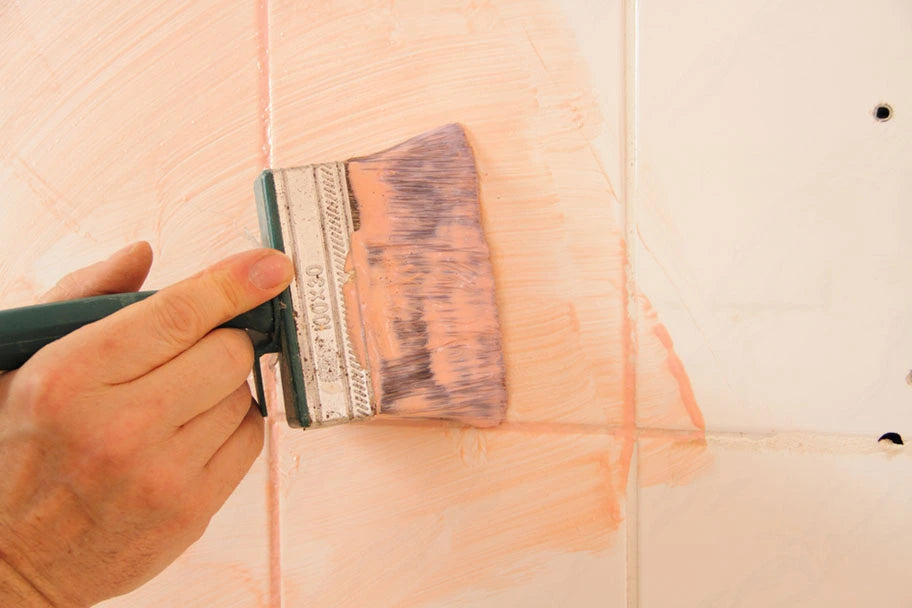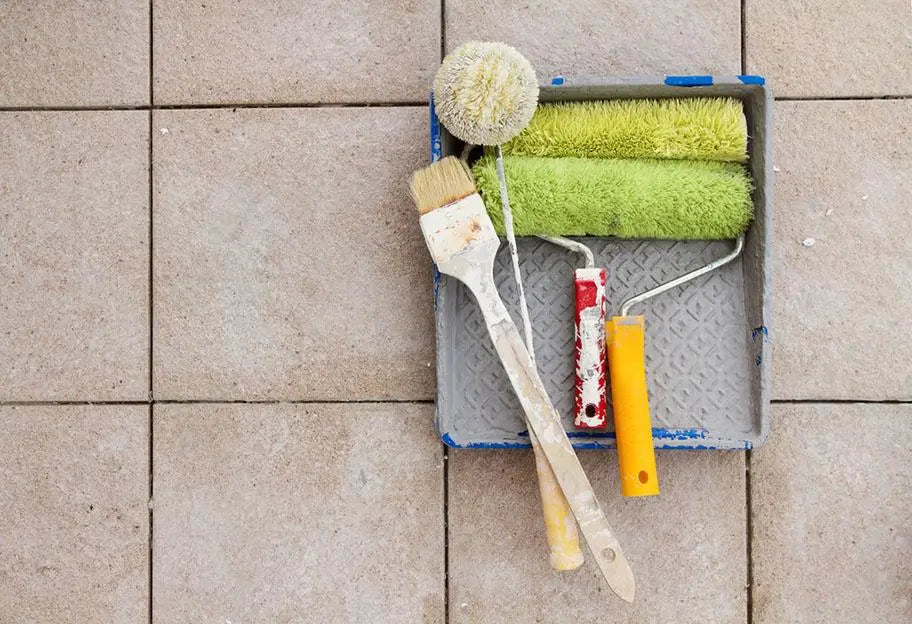Source: Sergey Spritnyuk/ Shutterstock.com
Committing to a certain type of tile doesn’t mean you’re stuck with that look until you pull it all up and revamp your bathroom, backsplash, foyer, or wherever that tile lies. It can be a little tricky, but you can, indeed, paint tile. For the do-it-yourselfer who’s looking to update but isn’t quite ready to pull up that tile and start again, we’re here to break down all the pros and cons of painting tile. Of course, when you’re taking on a tile job, we have everything you need, from the right tile cutter to the perfect tile for the job. So let’s dig into it. We’ll let you know what kind of tile can be painted and how you should go about tackling the job, should you decide to take it on.
The Pros
Apart from the aesthetic appeal, perhaps the best part of a well-executed tile paint job is all the savings. We’re talking time and money. Pulling up old tile and putting down new can be fairly laborious and expensive. And, unless you’ve done it before, you might run into a bump or two. That’s not to say we aren’t all for do-it-yourselfers taking on a tiling job, but it’s just not for everyone. Painting, on the other hand, is something everyone with do-it-yourself ambition can handle. You need little more than primer, paint, and a brush.
In addition to the savings, it’s also fairly easy. The type of tile that can handle paint well is close to all-encompassing, too. Porcelain, ceramic, and natural stone all bond well with paint. Basically, the only type of tile we caution against painting is glazed quarry.
Here’s a quick rundown of how to go about it. First of all, you need to ready the surface. Go over the tile with sandpaper—this roughs the surface for your paint. Vacuum the dust, and then clean with a damp sponge. If your grout has stubborn stains, try a stiff-bristled brush and a baking soda/ vinegar paste. When the simple solutions don’t work, you may need a heavy-duty grout cleaner. With your tile clean, you’ll need to apply a primer. For porcelain and ceramic, use a urethane or epoxy primer. For unglazed quarry or natural stone, use a masonry primer.

Source: mahc/ Shutterstock.com
Once the primer is dry, it’s time to paint. Use epoxy or latex paint for unglazed quarry, porcelain, or ceramic tile. Acrylic latex is best for natural stone. Painting tile is no different than painting any other surface. Take your time and be careful not to get paint on your grout.
Overview of Pros:
- It can save time and money
- Looks great when well executed
- Works for most tile and in most areas of the house
The Cons
As we’ve established, most tile handles paint well. But it’s not the best idea in all instances. If your tile is in regular contact with a considerable amount of moisture, painting is probably not the best move—your paint job is simply not going to last. So that’s bad news if you’re debating whether to paint your dated shower tile. Of course, most kitchen and bathroom tile is going to get moist from time to time. That’s okay. The regular soakings that shower tile endures, though—that’s just too much.
Like any painting task you take on, you need to work with a steady hand. Paint that gets on grout stays on grout—it’s a highly porous surface, after all. So, if you don’t want to paint your grout and don’t have confidence in your painting skills, you might want to think twice before painting your tile. Of course, you can always call on a professional, but that will eat into your cost-savings.
Overview of Cons:
- Could ruin the tile
- Not great for tile in high-moisture areas
- Requires an especially steady hand
Shop All of Our Tiling Tools

Source: Inara Prusakova/ Shutterstock.com
So there you have it. Painting tile is a great, cost-effective way to breathe new life into a room. Just don’t paint your shower tile. If you have questions about our tile or tiling tools, we’re here for you! Reach out to us at 1-800-709-0002.

